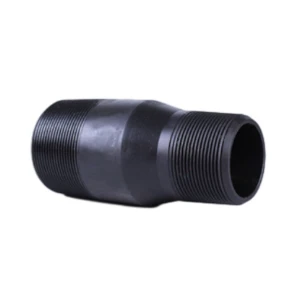- Afrikaans
- Albanian
- Amharic
- Arabic
- Armenian
- Azerbaijani
- Basque
- Belarusian
- Bengali
- Bosnian
- Bulgarian
- Catalan
- Cebuano
- Corsican
- Croatian
- Czech
- Danish
- Dutch
- English
- Esperanto
- Estonian
- Finnish
- French
- Frisian
- Galician
- Georgian
- German
- Greek
- Gujarati
- Haitian Creole
- hausa
- hawaiian
- Hebrew
- Hindi
- Miao
- Hungarian
- Icelandic
- igbo
- Indonesian
- irish
- Italian
- Japanese
- Javanese
- Kannada
- kazakh
- Khmer
- Rwandese
- Korean
- Kurdish
- Kyrgyz
- Lao
- Latin
- Latvian
- Lithuanian
- Luxembourgish
- Macedonian
- Malgashi
- Malay
- Malayalam
- Maltese
- Maori
- Marathi
- Mongolian
- Myanmar
- Nepali
- Norwegian
- Norwegian
- Occitan
- Pashto
- Persian
- Polish
- Portuguese
- Punjabi
- Romanian
- Russian
- Samoan
- Scottish Gaelic
- Serbian
- Sesotho
- Shona
- Sindhi
- Sinhala
- Slovak
- Slovenian
- Somali
- Spanish
- Sundanese
- Swahili
- Swedish
- Tagalog
- Tajik
- Tamil
- Tatar
- Telugu
- Thai
- Turkish
- Turkmen
- Ukrainian
- Urdu
- Uighur
- Uzbek
- Vietnamese
- Welsh
- Bantu
- Yiddish
- Yoruba
- Zulu
Understanding the Function and Types of Steel Pipe Couplings for Industry Applications
Understanding Steel Pipe Couplings An Essential Component in Pipe Systems
In various industries, the integrity and reliability of piping systems are of paramount importance. Steel pipe couplings play a critical role in ensuring that these systems operate smoothly and efficiently. This article will delve into the fundamentals of steel pipe couplings, their types, applications, and the advantages they bring to various engineering projects.
What are Steel Pipe Couplings?
Steel pipe couplings are mechanical devices used to connect two sections of steel pipes. They are designed to provide a secure and leak-proof connection that can withstand high pressures and temperatures, making them essential in various applications, from construction sites to oil and gas facilities. The coupling serves not only to connect the pipes but also to facilitate maintenance and the replacement of sections as needed.
Types of Steel Pipe Couplings
There are several types of steel pipe couplings, each engineered for specific applications and requirements. The most common types include
1. Full Couplings These are the standard type of coupling, connecting two pipes of the same diameter. They are typically used in systems where a straight connection is necessary and where the flow of fluids should be uninterrupted.
2. Half Couplings Designed to connect a branch line to a main pipe, half couplings only cover a portion of the pipe's circumference. This type is useful when creating a junction in the piping system.
3. Reducing Couplings These couplings are used to connect pipes of different diameters. They allow for a transition from a larger pipe size to a smaller one, ensuring a smooth flow in the system.
4. Screw Couplings Featuring a threaded design, these couplings enable easy disassembly and reassembly without the need for welding or additional tools. They are particularly valuable in temporary installations.
5. Welded Couplings These couplings require welding to create a permanent and durable connection between pipes. This type is often used in high-pressure applications where a robust bond is essential.
Applications of Steel Pipe Couplings
Steel pipe couplings are utilized across various industries, including
steel pipe coupling

- Oil and Gas In this sector, couplings must withstand extreme pressures and corrosive environments to transport hydrocarbons safely
.- Construction Used in scaffolding and structural frameworks, couplings ensure stability and longevity in construction projects.
- Water Supply and Wastewater Management Steel pipe couplings connect water supply systems and sewage pipelines, ensuring efficient flow and preventing leaks.
- Industrial Manufacturing Many manufacturing processes require the precise and reliable transport of gases and liquids, making couplings an indispensable part of the infrastructure.
Advantages of Steel Pipe Couplings
The use of steel pipe couplings provides several advantages, such as
1. Durability Steel is known for its strength and resilience, making couplings dependable even under harsh conditions.
2. Versatility With a variety of types available, steel pipe couplings can be used in numerous applications, adapting to different pipe sizes and configurations.
3. Ease of Installation Many couplings are designed for simple installation, reducing the time and labor involved in setting up pipeline systems.
4. Cost-Effectiveness By ensuring a secure and reliable connection, steel pipe couplings can help minimize maintenance costs and downtime due to leaks or failures.
5. Resistance to Corrosion Many steel couplings are treated or coated to resist corrosion, enhancing their longevity and performance in susceptible environments.
Conclusion
In summary, steel pipe couplings are vital components in the infrastructure of various industries. Their ability to provide secure, efficient connections between pipes enhances the overall performance and reliability of piping systems. With numerous types available, each catering to different needs and applications, steel pipe couplings are a key element in ensuring the safety, efficiency, and longevity of fluid transport systems. Whether in construction, oil and gas, or any industrial application, investing in high-quality steel pipe couplings is essential for long-term success and reliability.
-
Tubing Pup Joints: Essential Components for Oil and Gas OperationsNewsJul.10,2025
-
Pup Joints: Essential Components for Reliable Drilling OperationsNewsJul.10,2025
-
Pipe Couplings: Connecting Your World EfficientlyNewsJul.10,2025
-
Mastering Oilfield Operations with Quality Tubing and CasingNewsJul.10,2025
-
High-Quality Casing Couplings for Every NeedNewsJul.10,2025
-
Boost Your Drilling Efficiency with Premium Crossover Tools & Seating NipplesNewsJul.10,2025







